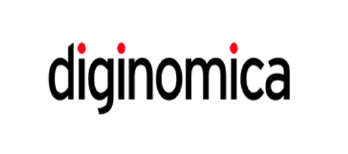Skyscape partners with Credits
Popular public sector infrastructure provider Skyscape has joined forces with platform provider Credits, to help bring blockchain solutions to government organisations.
By Derek du Preez
The UK government’s blockchain ambitions appear to be resonating with the market, as popular infrastructure provider Skyscape has announced that it has partnered up with blockchain platform-as-a-service provider Credits.
Credits is a relatively new company and it’s platform a very new service, but it is working hard to provide organisations with the tools they need to create their own blockchain applications.
This follows a number of government announcements and investments in the relatively new technology, the most recent of which saw Cabinet Office Minister Matthew Hancock announce that the government will begin looking at blockchain technology as a practical way to improve the efficiency of taxpayer money distributed as grants to agencies and partners for research and innovation.
For those unfamiliar, blockchain is the technology that underpins digital currency Bitcoin, and is a distributed ledger that allows for the anonymous trading of assets. Whenever explaining blockchain I always refer to this blog written on Brookings, that gives quite a simple explanation for something that’s quite technical:
“The elegance of the Blockchain is that it obviates the need for a central authority to verify trust and the transfer of value. It transfers power and control from large entities to the many, enabling safe, fast, cheaper transactions despite the fact that we may not know the entities we are dealing with.
The mechanics of the Blockchain are novel and highly disruptive. As people transact in a Blockchain ecosystem, a public record of all transactions is automatically created. Computers verify each transaction with sophisticated algorithms to confirm the transfer of value and create a historical ledger of all activity.
The computers that form the network that are processing the transactions are located throughout the world and importantly are not owned or controlled by any single entity. The process is real-time, and much more secure than relying on a central authority to verify a transaction.
You can see the appeal – distributed, verifiable, secure. That’s not to say there aren’t downsides, but blockchain is getting a lot of attention.
The partnership
Skyscape and Credits hope that they can get ahead of the game when it comes to the government making noises about the use of blockchain, by providing a platform that has proven to work in the public sector environment, based upon Skyscape’s certified infrastructure.
I got the chance to speak to CEO and founder of Credits, Nick Williamson, about the partnership and what he has planned for selling to public sector buyers. Giving some background on Credits, he said:
We are a blockchain platform. We have built it from scratch. We have built this blockchain platform to enable regulated use cases for both government and financial services primarily. But there are some other broader industry uses as well, especially things like supply chain management.
With government specifically last year we launched the first government service, running on a blockchain with the Isle of Man government. That was a registry of blockchain and blockchain adjacent companies that are domiciled on the island.
Following that we have a few more projects in the pipeline with them. The first of which is what we are calling federated KYC (Know Your Customer), which is basically marrying traditional KYC on-boarding processes using the blockchain as a method for distribution and at a station of identity.
So basically using it as a more accessible form of public key infrastructure that people can use to take an initial KYC on- boarding that may happen with say the passport office, or may happen with the bank, or any other sort of financial intermediary. And then be able to use that in different contexts, so if they want to open up a new account with another merchant or institution, then they can use that same initial proof, rather than having to go through the whole process again.
Given transactions using blockchain are inherently verified, identity is a strong use case for Credits’ platform.
Credits’ platform provides users with a set of libraries that allow developers to build their own blockchains, using traditional programming languages and techniques. Williamson said it uses “well understood, robust technologies” and allows people to build all the relevant parts of apps and services in a “fairly accessible way”.
So why Skyscape? For one, according to Williamson, they have the experience and kudos in the UK public sector market that Credits hopes to enjoy the benefit of. And Skyscape has public sector infrastructure that is accredited for cloud use. He said:
Skyscape has the experience and credibility of providing infrastructure for these government agencies. And there are very specific requirements to be able to give a cloud hosted service or cloud hosted infrastructure to government agencies. We are really drawing on their expertise in that area.
Skyscape provides the core infrastructure layer. We provide the platform on top of that that allows people to build the end applications and services that people actually use.
Will blockchain happen in the public sector?
There is a lot of debate at the moment about whether or not blockchain is suitable for widespread adoption, let alone in the public sector. Some of this is top-level discussion about whether we should build trust into technology, when we have typically relied on a democratic process. Other stuff is more technical, about the amount of energy and computers used to run a blockchain system, as well as the time it can take to process a ledger.
As I noted above, Williamson picks up on the point that he thinks identity is a sweet spot for blockchain applications in government. He said:
There are a few aspects of identity that we are focused on for the time being. Because almost every other specific application that you look at, whether that be government procurement, whether that be payments, voting, none of that makes sense as a use case unless you have an identity component underlying it all. How do we onboard real-world identity and existing trust networks into these blockchain networks? And then we can start building the actual and use cases on top of those trust networks that now live in these blockchain networks.
He also said that he sees it initially being used internally within government departments, as

opposed to for outward facing citizen interactions. He said:
There’s a bit of a chicken and egg problem there, right? To get it up off the ground initially you’re going to need the capability there. But then you’re going to start needing to get uptake with the actual constituents or users of these services. So to solve that we really see it first happening in an organisation to organisation sense. Or even being used wholly internally. Because one of the compelling use cases we have seen for blockchain technology is as an audit trail for various interactions. But as we get a bit more comfortable that this technology works the way that we predict it will and as we start developing better tools, individual constituents can very easily start adopting these technologies.
My take
It’s going to be a while before we start seeing widespread adoption of blockchain in the public sector, as it’s still a relatively new technology that’s still being refined and proven to be effective. But Skyscape and Credits are smart to recognise the government’s intentions and get in there early.
